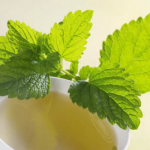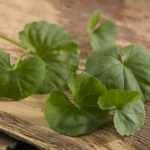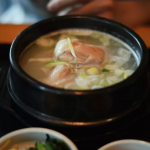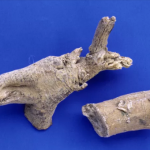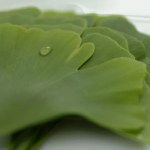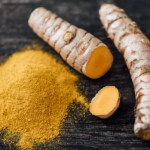Herbs & spices for brain health
 7 Best Herbs and Spices for Brain Health
7 Best Herbs and Spices for Brain Health
By Cathy Wong, ND | Reviewed by Richard N. Fogoros, MD From very well mind
Research suggests that a number of herbs and spices may help improve your brain health, and some of them may be already sitting in your fridge or pantry. Several of these herbs and spices have been studied for their effects on Alzheimer’s disease, while others have been tested for their overall effects on cognition (i.e. the mental action or process involved in thinking, understanding, learning, and remembering).
Here’s a look at some of the herbs and spices found to benefit the brain in scientific studies.
1
Sage
Sage, Pumpkin Tortellini with Brown Mushrooms
Schon & Probst/Picture Press/Getty Images
A spice known for its pungent scent, sage may possess memory-enhancing properties, according to a small study published in Pharmacology, Biochemistry, and Behavior in 2003.
Sage might also aid in the treatment of Alzheimer’s disease. In fact, a research review published in Evidence-Based Complementary and Alternative Medicine identified sage as one of the several herbs that may be beneficial to Alzheimer’s patients. The other herbs included lemon balm and the Chinese herbs yi-gan san and ba wei di huang wan.
Try adding sage to butternut squash, roasted chicken, turkey, tomato sauce, or in a white bean soup. Sage can also be consumed in tea form.
2
Turmeric
Turmeric
Westend61/Getty Images
Turmeric is a spice long used in Ayurveda. It contains a compound called curcumin, which has antioxidant and anti-inflammatory effects (two factors that may benefit brain health and overall health).
Preliminary research suggests that turmeric may boost brain health and stave off Alzheimer’s disease by clearing the brain of beta-amyloid (a protein fragment). The buildup of beta-amyloid is known to form Alzheimer’s-related brain plaques.
In addition, turmeric may shield brain health by inhibiting the breakdown of nerve cells in the brain.
Turmeric is a key ingredient in curry powder, which typically also includes such spices as coriander and cumin. To increase your intake of turmeric, try adding curry powder or turmeric to stir-fries, soups, and vegetable dishes. Include a couple dashes of black pepper to enhance the absorption of turmeric.
3
Ginkgo biloba
Ginkgo leaves
Achim Sass/Getty Images
Long used as a treatment for dementia, ginkgo biloba is a commonly taken remedy in traditional Chinese medicine (TCM) and well known for its benefits. It’s thought that ginkgo biloba might help improve cognitive function in part by stimulating circulation and promoting blood flow to the brain.
Although research on ginkgo biloba has yielded mixed results, there’s some evidence that this herb may enhance cognitive function in people with Alzheimer’s disease or mild cognitive impairment.
Furthermore, a research review published in the Journal of Alzheimer’s Disease in 2015 suggests that a ginkgo biloba extract called EGb761 may be especially helpful in slowing decline in cognition among patients experiencing neuropsychiatric symptoms in addition to cognitive impairment and dementia.
A core feature of Alzheimer’s disease and dementia, neuropsychiatric symptoms include depression and other non-cognitive disturbances.
4
Ashwagandha
Ashwagandha
Vaithinathan Muthuramann/StockFood Creative/Getty Images
Another Ayurvedic herb, ashwagandha has been found to inhibit the formation of beta-amyloid plaques in preliminary research.
What’s more, some preliminary studies have indicated that ashwagandha may benefit the brain by reducing oxidative stress (a factor that may contribute to the development and progression of Alzheimer’s disease).
5
Ginseng
Ginseng chicken soup
Cheryl Chan/Moment Open/Getty Images
One the most popular plants in herbal medicine, ginseng contains anti-inflammatory chemicals called ginsenosides. In preliminary studies, scientists have observed that ginsenosides may help reduce brain levels of beta-amyloid. It’s also sometimes taken to fight Alzheimer’s Disease.
You can also read more about the various types of ginseng, including Panax ginseng and American ginseng.
6
Gotu Kola
Gotu kola
Ottmar Diez/Photodisc/Getty Images
In alternative medicine systems such as Ayurveda and TCM, Gotu kola has long been used to improve mental clarity. Findings from animal-based research suggest that this herb may also help the brain by fighting oxidative stress.
In a preliminary study published in Clinical and Experimental Pharmacology & Physiology in 2003, for instance, tests on rats demonstrated that gotu kola may inhibit Alzheimer’s-associated oxidative stress and improve cognitive function.
7
Lemon Balm
Lemon balm tea
Ottmar Diez/StockFood Creative/Getty Images
An herb often taken in tea form and frequently used to ease anxiety and insomnia, lemon balm may help improve cognitive function.
For a study published in the Journal of Neurology, Neurosurgery, and Psychiatry in 2003, 42 patients with mild to moderate Alzheimer’s disease took either a placebo or lemon balm extract for four months. At the end of the study, those given lemon balm showed a significantly greater improvement in cognitive function (compared to those given the placebo).
8
Should You Use Herbs and Spices for Brain Health?
Spices in basket on table outdoors, overhead view
Joao Canziani / Getty Images
While certain herbs and spices may have beneficial effects on your brain, no natural remedy should be used as a substitute for standard care in the treatment of a condition affecting brain health.
Disclaimer: The information contained on this site is intended for educational purposes only and is not a substitute for advice, diagnosis or treatment by a licensed physician. It is not meant to cover all possible precautions, drug interactions, circumstances or adverse effects. You should seek prompt medical care for any health issues and consult your doctor before using alternative medicine or making a change to your regimen.
For more on this story go to: https://www.verywellmind.com/best-herbs-and-spices-for-brain-health-4047818

